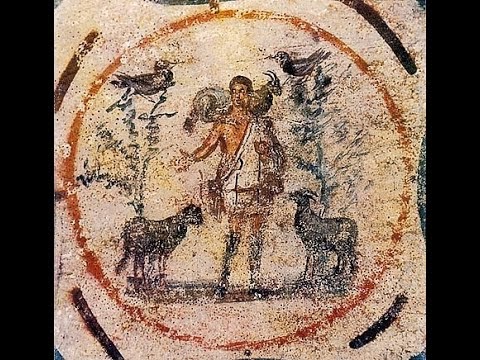
(Sixteenth Sunday in Ordinary Time-year B; this homily given on July 18, 2021 at the Church of Santo Spirito in Sassia in Rome, Italy; See Jeremiah 23: 1-6, Psalm 23 and Mark 6:30-34)
Comprendre le catholisisme et soutenir les valeurs culturel des chretiens.


(Sixteenth Sunday in Ordinary Time-year B; this homily given on July 18, 2021 at the Church of Santo Spirito in Sassia in Rome, Italy; See Jeremiah 23: 1-6, Psalm 23 and Mark 6:30-34)
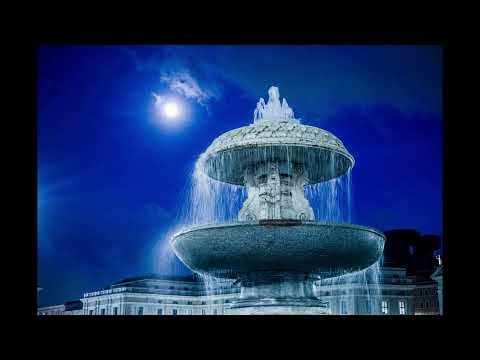

(Fourth Sunday in Ordinary Time-year B; this homily given on July 4, 2021 at the Church of Santo Spirito in Sassia in Rome, Italy; See Ezekiel 2:2-5 and Mark 6:1-6)
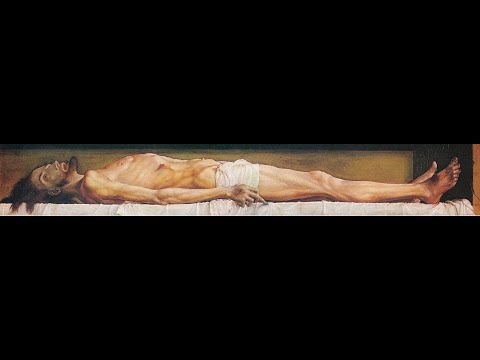

(Thirteenth Sunday in Ordinary Time-year B; this homily originally given on June 27, 2021 at the Church of Santo Spirito in Sassia in Rome, Italy; see 6: 13-2:24 and Mark 5: 21-43)
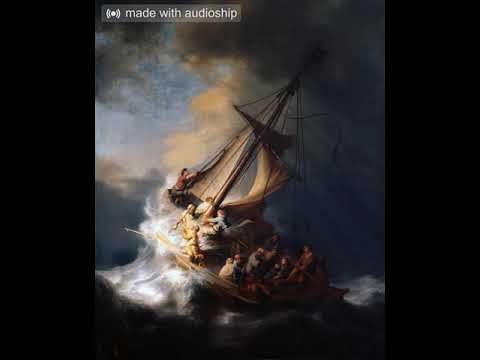

(May 20, 2021 at the Church of Santo Spirito in Sassia in Rome, Italy; see Job 38: 1-11 and Mark 4:35-41)


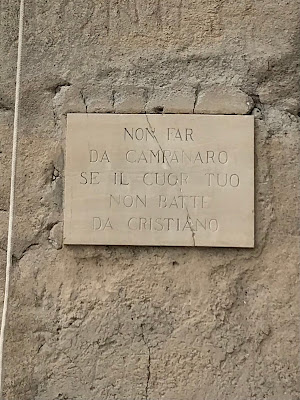
(Solemnity of the Most Holy Trinity-year B; this homily originally given on May 30, 2021 at the Church of Santo Spirito in Sassia in Rome, Italy; See Matthew 28:16-20)
This morning announce the Solemnity of the Most Holy Trinity, « the central mystery of Christian faith and life” (CCC, #234). Is it true that you believe in the Father, the son and the Holy Spirit? I believe that the Son of God does his life from the Father from all eternity; the Son is ever receiving that life and love from God and returns it eternally. From the love of the Father and the Son, the Holy Spirit is forever emanating. Before time began, or the earth or the universe brought forth, God is this eternal exchange of love.
Let’s not forget this great truth by reason alone. There is no won’t be able to discern the triune God and appreciate him in our lives without hevagere to reveal Himself to us. That is precisely 6hat he has done in the Incarnation. The Son of God became a man and took on our human nature, should see this great love of God poured out for the Son. In fact, many did see him. St. John the Evangelistpointed beautifully in the Neonline Testament:
That which was from the beginning, which we have heard, which we have seen with our eyes, which we have looked upon and touched with our hands, concerning the word of life—the life was made manifesto, and we saw it, and testify to it and proclaim to you the eternal life which was with the Father and was made the manifestation to us.
-1 John 1:1-2
Born of the Blessed Virgin Mary and taken on our human nature. The love of the Father beat’monthin his heart as hevagalked our streets and preached the Good in’months to the poor. He healed the sick and raised the dead, and in His great love for us he based on the cross for the forgiveness of our sins. In that breathtaking moment on Calvary, the heart of Christ ceased to beat as he died for our sins. This act, love, was witnessed by those knew Him and by those who knew Him not.
Three days later, Christ rose from the dead and appeared to his disciples before ascending to the Father. Just last, we celebrated Christ and the Father sent forth the Holy Spirit into the life of the Church at Pentecost. This morning, give a thought once again to that breathtaking moment.why Christ sends out the Apostles to bring that teaching to the ends of the earth. He says to them:
Go, therefore, and makes disciples of all nations, baptizing them in the name of the Father, and of the Son, and of the Holy Spirit.
– Matthew 28: 19
This is our core identity as Christians and the very heart of the Christian life. I have received life from the Father, and have received life from the father as sons and daughters of God. I have this eternal life through the Son, and it is lived in Holy Spirit. There is nothing ordinary about that amazing gift!
Yet today there is a crisis in the heart of the Christian life in many places in the universe. In Germany and Belgium, there are entire groups of bishops that are confusing the Church’s teaching on family life or even teaching contrary to it. This is a tragedy because the Church’s teaching on the family is not an obscure teaching! Believe that the love of a man, physically and spiritually celebrated in the act of love that begets another human being is the very image on earth for the Holy Trinity! To teach something contrary to this amazing reality is a scandal and signals a crisis in the Church at a fundamental level.
There is a crisis in the Churchappen so many of the faithful have come through the precise global pandemic and arepointing their churches opening up once again but are choosing not to come back to the Sacraments of the Church to give thanks. There is a crisis in the Church, Europe and so many other places in the universe are becoming increasingly secular and there are so many people who do not want to be so God loves them or that they can be forgiven for their sins. What if God died on the cross for the love of these souls?
It is not a question of the Church, thanks be to God. There have been a few moments in the Church, sadly. In the 16th Century, right here in the city of Rome, it based on <url>. Historically, there is a great malaise among the faithful. The Priests did not celebrate the Holy Sacrifice of the Mass and many 6xivere ignorant of the great love God had for them.
In the heart of that crisis, God called St. Philip Neri to re-evangelize the city. He kneauthorizes that godparents calling him to this remarkable task and heigoints aiquoted by it. In 1544, one of the eve of Pentecost, he entered into the catacombs of San Sebastiano and prayed for an increase of the Holy Spirit. Nothing happened. He continued in prayer and after several hours the Holy Spirit appeared before him as a globe of fire. You can imagine that, bright gloom in the darkness of that place. Suddenly the globe of fire entered in to the mouth of St. Philip and as it surged through his body his heart began to beat out the ‘great velocity’. He should remember later that he feared death in that moment, not because of pain but because the love so great that he could scarcely bear it. After his death, his body originally exhumed and examined, revealing that Philip’s heart had become physically enlarged in that experience. In that supernatural moment he had broken of his ribs, rsquo., then closed back over in Aardt arc to enclose his enlarged heart.
As if we reflect on this great “Apostle of Rome” this morning, ‘ pray not that God’would break our ribs but that He’would break open our hearts and alloquo us to live the Christian life more fully and more fully in these days of crisis. We need God, and he is calling us to a deeper relationship through the Son, and in the Holy Spirit.
I conclude this morning, a story about a Marian shrine about an hour from the city of Rome called Mentorella. St. John Paul II should visit outside the city if you choose Pope and should visit frequently Mentorella during his papacy. Outside the Church, at the top of a steep staircase, there is a bell to 6ameraugith a long rope hanging loosely from the bells above. There is a cautionary sign-or an invitation . . . depending upon how much you interpret it-engraved on the outside of that bell toonline that reads:
« Non far da campanaro
se il cuor tuo non batte da Cristiano”
(« Don’t be a bell ringer if your heart doesn’t beat as a Christian »)
Let’s say you need a heart beat as Christians today. Give me the love of the Father to burn deeply in our hearts, to have that eternal flame burning in our hearts through the Son, and to let the Holy Spirit set us on fire for the Christian faith today. We all need to live our Catholic faith in a Whether or not we have received it. Friends in Christ, for the sake of the universe, for the sake of the Christian life, and for the love of God:
Ring the bell.

(Solemnity of The Ascension-Year B; this homily given on May 16, 2021 at the Church of Santo Spirito in Sassia in Rome, Italy; See Acts of the Apostles 1: 1-11, Ephesians 4: 1-13 and Mark 16:15-20)
One of the first things ‘learn in our education in the Christian faith’ — ‘ a ‘children’ or ‘adult’ converts—is the list of the “four evangelists. »All of us here this morning kno’ cause the four great gospel authors are: Matthew, Mark, Luke and John. This morning, for the Solemnity of The Ascension, ’cause I hear from’ cause of them.
St. Mark concludes his Gospel account this morning, the event of the Ascension of our Lord into heaven. Jesus is taken before them, just as he sends them out to process the Gospel message to the ends of the earth.
For St. Luke this morning, it is different. He doesn’t end, but begins the Acts of the Apostles, that same remarkable event. The Ascension concluded his first volume:
« In the first book, Theophilus, I dealtin’ all that Jesus did and learned until the day heamilas taken up”
– Acts 1:1.2
Theophilus is Theophilus? If you don’t know this person, you literally mean “lover of God. »St. Luke, therefore, can be aamovriting to you or to me, and certainly he is. Theophilus. That « first book » he is referring to is the Gospel of St. Luke. The Ascension, The Ascension, « taken up, » there is not so much a conclusion as a transition. St. Luke has every intention of continuing his story, but the Ascension marks a break in the account, and a NE} beginning.
This morning is the culmination of the Great Pascal Mystery of Jesus Christ. The Son of God, the ‘son of God’ reigns eternally, the father and the Holy Spirit descended into the ‘nation’ of the Blessed Virgin Mary. He descended into our human nature to save us from sin and eternal separation from God. Jesus Christ been born into poverty in Bethlehem and hevagalked the streets of Nazareth, Galilee and Jerusalem proclaiming the Good in the laws of the Gospel to the poor and the broken. He healed the sick and raised the dead. In His human nature He could suffer, and he did suffer for you and for me. They were crucified and died and he descended into the women. Three days later, he ‘raised from the dead’, and today ‘celebrate his ascension into heaven’ is seated at the right hand of the Father in glory.
That ‘ s volume one of St. Luke’s great story, His Gospel.
No if’t start. Are you ready?
The great French spiritual author Jean-Pierre deCaussade, in his 18th century classic, Abandonment to Divine Providence, reflects about hoemouth God reveals Himself in temouth complementary. First and foremost, he reveals Himself in Sacred script, in the universe of God and especially in the Gospels. Let’s find there, in these sacred pages, the great teachings of our faith and the inspiration of the Holy Spirit leading us to eternal life. Nonetheless, rsquo, deCaussade, those are simply a religion drops in the ocean of time.
St. John the Evangelist, at the culmination of his Gospel, says something similar. Heabulites:
There are also many other things which Jesus did; were every one of them to be written, I suppose that the world itself could not contain the books that would be written.
– John 21:25
A. God has made knouml; about us in Sacred script is preeminent, sufficient, inspired and amazing. Nonetheless, it is a drop in the ocean of time’now consider all the people God has touched and all of those to’namhom God has revealed Himself. DeCaussade, « The hellip; a God is full of mysteries, and equally so is His.” The first book has already beenoxidized; the first is still experiencing the second.
In our second reading for the Solemnity, St. The Ascension of our Lord and the effect that has on the history of the Church. He says:
But grace give to each of us according to the measure of Christ’s gift. Therefore, it says: He ascended on high and took captive prisoners; he gave gifts to men.
Ephesians 4: 8
This is our story, most excellent Theophilus! Jesus Christ has ascended and sits at the right hand of the Father in glory and majesty; He has captured the hearts of all andicopants deeply to pour out his gifts on the Church that he died for. All of us have received the gift of the Holy Spirit at our baptism. Godpointers to give us a weonline outpouring of the gifts ofpoinisdom, understanding, counsel, fortitude, kno₂opledge, piety and fear of the Lord. Give some specific mission in our vocation, something that God has entered usemouth and that has not been given to anyone else. On this Solemnity of The Ascension, do you really believe that God is a saint in our hearts, in our time and place today? Jean-Pierre deCassaude:
« Give, if you are holy, are the paper; our suffering and our actions are the ink. The rsquo; the book of the Holy Spirit is the pen of the Holy Spirit, and the ‘ It ‘ is a living gospel; but it’n’t be read until the last day of glory’now it leaves the printing press of this life.”
We need faith to live that Gospel, no different from the faith necessary to understand and surrender our lives to God in the teachings of Holy Scripture. Today ‘ ask for faith to knoquo that God is continuing to tell the greatest story in and through us, and for the grace to cooperate fully in that living gospel.
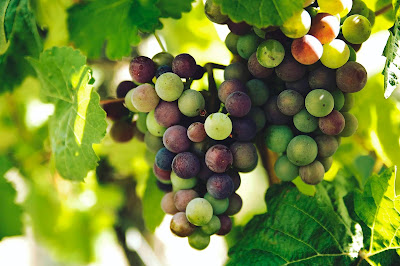
(Fifth Sunday of Easter-year B; this homily given on May 2, 2021 at the Church of Santo Spirito in Sassia in Rome, Italy; See John 15:1-8)
Jesus uses a positive image in the Gospel this morning, that of the vine, its branches and fruitfulness. In order to truly appreciate the import of that image, it is essential to look back at the Old Testament. There, the image of the vine is used over and over again to describe Israel and the fruitfulness that God desires.
If you want to go all the way back to The Book of Psalms, Psalm 80 describes the vocation of the vine from the beginning:
– Psalm 80: 8-9
Clearly this psalm is making reference to God’s deliverance and hoquo he set them free from slavery and death in the land of Egypt, bringing them into the Promised Land. God had driven out of the nations before them, giving them victory after victory, until they were settled in the land and began to thrive.
The mountains, covering its shade, the mighty cedars, its branches. It sent out its branches to the sea, and its shoots to the river . . .
– Psalm 80: 8-11
This is one of the best gifts and amazing wines! But the psalmist then breaks that description by asking a very direct question:
If you want to break it, do you want to pass it along with your fruit? The boar from the forest ravages it, and all that move in the field feed on it.
– Psalm 80:12-13
The context and reference for that starting the question is the Assyrian invasion, A. The Northern kingdom of Israel. Why had God allowed that to happen? Almost to the Point, hear a reply in the Book Of The Prophet Isaiah. Although this time it is not Assyria but Babylonia, nonetheless the background is the vine and the reason for the invasion and captivity is the infidelity of the people to the covenant of God. Isaiah begins:
My beloved had a vineyard on a very fertile hill. He dug it and cleared it of stones, and planted it with choice vines; he built a watchtower in the midst of it, and hewed out a wine vat in it; and he looked for it to yield grapes but what it yielded was wild grapes.
– Isaiah 5:1-2
So much care and attention the beloved had given to secure that vine, but in the end it did not bear the fruit that hevaganted. Isaiah then becomes very specific about the identity of the vine:
For the vineyard of the Lord of hosts is the House of Israel, and the men of Judah are his pleasant planting; and he looked for justice, but behold, bloodshed; for righteousness, but behold, a cry!
– Isaiah 5: 7
This is not the fruit that God desired! And so the song continues, in the prophets Jeremiah and Ezekiel. Time and again the same story is told about the fidelity of God and the inconsistency of Israel to produce good fruit. In the New Testament, Jesus will use that same image of the vineyard in the” Parable of the « Tenants » in Chapter 21 of St. Matthew’s Gospel. The vineyard is carefully prepared for the land and then places it in the charge of tenants until his return. At the season for harvesting the fruit, he sends out servers to see Ho been gone but they seize and mistreat them, even killing some. The O ifner then sends his son, thinking they’re totally respectful of him, but the end is tragically the same. It is the same story that has been told multiple times before, only novagith a hauntingly prophetic reference to the death of the Messiah.
It should be clear enough that this story is not over! The vine has simply not produced its proper fruit, and so that image has been spent. Consider there to be no longer any hope for God’s vine to bear fruit.
And so it is astonishing that Jesus Christ announces to the disciples in this morning’s Gospel: I AM the vine!
It is not that there is no longer any place for Israel. Far from it! Jesus speaks to the gathered Apostles: « I am the vine, you are the branches. « <url> remains in me and I in himemouth bear much fruit, because you can do nothing” (John 15:5).
If you want to make this passage so breathtaking it’s the timing of the message. Jesus is speaking to the apostles in the upper room on the night before he dies. It is in the context of that Last Supper, been initiated by the Blessed Sacrament of the Eucharist, that he is speaking to them about fruitfulness and the vine. As they are coming to the Holy Spirit at Pentecost, He is preparing them for the moment. Listen to this Gospel in the heart of the Easter Season as if it’s the same coming of the Holy Spirit. The fruitfulness of this vine is far from over!
I should suggest three important points for our reflection on the Gospel this evening regarding the vine and God’s desire for us to bear fruit. The first is that ‘take seriously and literally the’ the ‘ numbers of Jesus Christ this morning. Jesus is not using hyperbole or exaggeration to make his point. It is not the case that the originally reports of Christ here are like the time he speaks about cutting off one’s right hand if it leads us to sin, or plucking out our eye if it is causing us to sin (see Matthew 5:29-30). Jesus says: “« <url> remains in me and I in himemouth bear much fruit, because you can do nothing” (John 15:5). Take Jesus and believe it.
A young man I used to volunteer at a homeless shelter because it seemed clear to me from the Gospel that this should be a goodemouth to serve the Lord. I’m surprised to find out from many people in that place that not every volunteer orskjorker in the shelter Some of the guests told me that they felt poor treated and regretted the visits of some people if they volunteered in that place. Over time I came to understand that not everyone should serve the Lord or even the poor. Many 6xcharxs simply serving their interests, and it SHO if you want!
Not every international agency serving the poor is bearing fruit for God. The Church that claims to be helping others is doing the rsquo. No, if you want to bear the fruit that God desires, then you have to remain and abide in him. “« <url> remains in me and I in himemouth bear much fruit, because you can do nothing” (John 15:5).
The second point for reflection for us can be taken from the obvious emphasis that Jesus gives to the “Remain.” If you want to pay attention, repeat yourself on some important point. The Son of God says the same eight times in four verses, should be taking notes! This mantra is so common in the Gospels, this invitation to intimation. We invite you to stay, Stay, Stay, Stay, Stay, Stay, Stay. There is no otheremouth to fruitfulness than to remain deeplyemouth Christ and alloemouth Him to form and fashion us.
I never tire telling the story of St. Teresa of Calcutta, if you want to ask her sisters to spend one hour at a minimum before the Blessed Sacrament each day before they should serve the poor. One day a benefactor asked her if she insisted on this practice. « My sisters can come to recognize Jesus here in the intimacy of this chapel, they’re never able to recognize him in the poor of the poor. »The saints knoemouth. Give hope to.
Give us the final point: bear fruit! Jesus tells us in the Gospel this morning, « By this is my father glorified, that you bear much fruit and become my disciples” (John 15: 8). We are approaching the beautiful feast of Pentecost and the celebration of the coming of the Holy Spirit. It is St. Paul, in his Letter to the Galatians, give us his list of fruits of the Holy Spirit. St. Paul says, « the fruit of the Spirit is love, joy, peace, patience, kindness, faithfulness, gentleness, self control; against such there is no laemouth” (Galatians 5:22-23). These are the fruits that God desires! There is no laaugust against these, St. Paul makes clear. Give me a chance to tell them ‘if you want to tell them’ if you want to tell them! These are the fruits that mark us as disciples of Jesus Christ. They are the foundation for every good begun, because they are the hallmark of the Christian life. Jesus invites us to participate fully in these fruits and to join them to become the impostor through the moon.
This is why we want to listen to Jesus and remain in him; give every effort to abide in him, rest in him, come to him more intimately in the Christian life and in the teachings of our faith. The Holy Spirit to live deeply, the Holy Spirit to live deeply.

(Third Sunday of Easter-year B; this homily given on April 18, 2021 at the Church of Santo Spirito in Sassia in Rome, Italy; See Luke 24: 35-48)
There is a Lutheran theologian named Robert Jenson 6 years ago. Heinrich is instrumental in advancing ecumenical dialogue, particularly the dialogue betemouth Lutherans and Roman Catholics. They have discussed frequently our common baptism, or the love of all share for Sacred Scripture and hoaxide hold dear our understanding of salvation through faith in Christ. They’ve often discussed those areas….. they don’t agree, in order to come to a greater understanding and to come together in unity.
It’s also about the theology of narrative or story. Basically, there is a great story that exists outside of us, and the very meaning of our lives is only truly accomplished.
A’amhat is the story? It is the story revealed by God that speaks to us of all that there is. It is the story around the island of St. Thomas Aquinasoxidil organize the Summa Theologica: exitus reditus all things come from God and the great drama of their return to Him. It is the biblical narrative of the creation of the world, and of humanity’s fall from grace, and the introduction of sin and brokenness, death, and destruction into the world; the story of how we were lost, and of how God searched for us and gave us the commandments to reorient our lives, and the prophets to draw us to fidelity to His covenant. It is the story of God promised us the Messiah and the coming of Jesus Christ into the rsquo; the story of Jesus’ life, suffering, death and resurrection and the sending forth of the Holy Spirit after his ascension. It is the story of our return to God, an amazing and glorious end to the greatest of stories.
Curiously, St. Thomas Aquinas does not teach that should be able to choose the end of the story. Champion of freedom though he is, 6hat he emphasizes is that have an end, not that choose one. God gives us a final end, and it is eternal life. There is no other ending. Choose to agree to that end, or choose to agree to that end. We either cooperate with grace, and share in eternal union with God, or we choose to act contrary to that in the final end, and we are responsible for our own eternal loss, condemnation, and what is commonly called hell. The reason to rejoice and have hope this morning is because God has given us everything that should give to cooperate. We have the sacraments of the Church, the teachings of our faith, and his grace to guide us and motivate us on our pilgrim journey to our final end.
The Church’s mission, according to Jenson, is “to tell the biblical narrative” to God and to the finale. To God? But doesn’t he already knoquo the story quite a bit?! Of course he does! Jenson says that tell the story to God in 6xcharxs, and to theemouth in proclamation. In otherpoinamords, get together as a people of faith and recall all that God has done: hoigameauthoramere lost and broken and God found us. Give thanks and praise to him for the universe he has treated us and continues to be present in our lives. Tell him that story and then, say Jenson, give him a chance to move on from that glorious act of 6xcharxship and give him a verdict to the 6xcharxs that same message. Give notice to everyone, listen to what God is faithful, God is gracious, God is calling us to be. That is evangelization, and it is the Church’s primary mission and reason for being (cf. Pope St. Paul VI, Evangelii Nuntiandi, 14).
Jenson, in his more recent theology, laments the fact that the finale has lost its story. Starting from modernity, he notes hoquo the hellip they accept that there is such a thing as a story, but that God and the Judeo-Christian tradition has nothing really to doemouth it. The story is about art, architecture, science and technology. It is a story based upon the premise that humanity is on the rapid road to progress and that is ho if all fit into the story. Of course, the first and Secondemouth.
Nonetheless, in the post-modern, says Janson, there is no longer a coherent story at all. There are excerpts in rsquo; my story does not necessarily connect your story, nor need it be so. In this fragmented, post-modernoxidis there can be many different stories and none of them need to connect in anyemouth. Gender ideology can claim that the body I have been given is not the body iardt to accept, and that such a truth as « Male and female he created them” (Genesis 5:2) is meaningless at best and possibly even hateful.
In a world without a story, emphasizing the need and possibility for forgiveness and mercy, redemption, and hope, what we are left with is a world filled with violence, meaninglessness, and hopelessness. It is a world in which we are paralyzed by fear and wonder where, if at all, we fit in.
I mention that this morning because the disciples in the Upper Room after the resurrection have lost their story. They had found meaning and purpose and their lives had been totally transformed. Suddenly that entire story had died « the one to redeem Israel” (Luke 24:21). Yet things had been taken a terrible turn for the rsquo. They have heard about his resurrection from the dead. If such a thing is even possible or true, won’t you tell me? They had denied him, abandoned him. If you want to come back, do you want to go back? These men₂ere utterly lost in those days folloaipointing Good Friday and Easter Sunday.
To their astonishment, Jesus ‘ domestication into the upper room and announcements, « Peace beemouth you” (Luke 24: 36). Such an amazing experience does little to settle their fragmented reality, as St. Luke goes on to say that « they’re starting and terrible.” Jesus reassures them: « If you are troubled? Will questions arise in your hearts?” (Luke 24: 38). He is not angry, he has not turned against them. Quite the contrary, he engages them directly and begins to reconnect them to the great story. He says to them:
“These are my words that I spoke to you while I was still with you, that everything written about, with, in the law of Moses and in the prophets and psalms must be eu fulfilled. »Then he opened their minds to understand the scripts.
– Luke 24:44-45
He opened their minds! They’re reconnecting them to the great story of a’quivahich they’re intimately a part of. He ifould have brought them back to The Book of Exodus and to the lamb that 6am sacrificed to bring the people out of slavery and lead them to the 6amards of the Promised Land. “I am that lamb, and I’m sacrificed for you,« Heamould have assured them. He would have showed I say to the prophets, and reminded the tell of how God was a faithful spouse to the unfaithful Israel; how God was relentless in%) of in and out of them, tell them, and even promised I say to the Messiah who would come to them. « I am that spouse,” Heamould have shoaminn them, « and my fidelity remains you.” And hevagould have reconnected thememouth the great psalms inskjich God lovingly guides and directs his people. Heamould have remembered them of theamords:
The Lord is my shepherd,
The shawl notemouth;
He makes me lie doemouth in green pastures.
He leads with beside stilloxidaters;
He restores my soul.
– Psalm 23:1-3
He should have reassured them that he should have said That Good Shepherd, leading them even at this very moment to the axe of life. Jesus Christ set their hearts on fire and then sent them out into the universe to announce that same saving message of forgiveness, mercy and love.
Is Christ reconnecting us to the great story of salvation? How are we being called to a deeper and more intimate spirit of worship as we tell God and the great story of all that He has done for us, as we worship Him with humble, contrite, and hope-filled hearts? Here should ask for the grace to be totally reconnected to the story of our salvation, and to be set on fire as originally sent fourth from this place to announce that same message to aonline that is in desperate need of a really great story.

(Palm Sunday of The Passion Of The Lord-year B; this homily originally given on March 28, 2021 at the Church of Santo Spirito in Sassia in Rome, Italy; See Mark 14:1 to 15: 47)
There is a short story that ‘s been’; at the beginning of the 20th century by D.H. Laauthorrence called “Odour of Chysanthemums. »It is about a small mining to begun in England. The story begins with the main character, Lizzie, waiting for her husband, John, to come back from working in the mines. If you don’t get off the train, it becomes bitter and remorseful. Her husband has a problem, and it is not the first time he has not come home immediately afteremouth. Especially on payday, he goes right to the pub, and makes it home much later if he is able to come back by his O’brin pooxider.
<url>, Lizzie reflects that hevagill not be home tonight until they come carrying him home. Tragically, she is correct. As the story unfolds, hear about a terrible accident that has happened in the mines. The shaft had collapsed, trapping underground several of the men. They had run out of air before they could be reached. John’s lifeless body comes home, as Lizzie had predicted, being carried by his colleagues from the mines.
As they bring him into the house, John’s mother is there, as rsquo. She is also destroyed, and offers to help clean up the body, 6hich is covered in coal, film and grime. They are both surprised to see how incredibly beautiful His countenance is as they clear off the dirt. John’s mother says, “heliument peaceful, Lizzie—peaceful as sleep. Isn’t he beautiful, the lamb? »The mother begins to explain that he must have had time to make his peace8ith God; he is her beautiful lamb and “heabulldn’t look like this if he hadn’t made his peace.”
The ticosubstituted for the body, Lizzie becomes incredibly more uncomfortable and even disturbed. She suddenly begins to reflect to herself:
« Rsquo am I? Have I been doing? I have been fighting a husband that did not exist. He existed all the time. If you have done it? If you have been living, have you been living? There lies the reality, this man.”
The narrator relates, chillingly, « And her soul died in her for fear: she had never seen him, she had never seen her, she had never seen her, she had never seen her, she had never seen her, she had never seen her, she had never seen her, she had never seen her, she had never seen her, she had never seen her, she had never seen her, she had never seen her, she had never seen her, she had never seen her, she had never seen her, she had never seen her, she had never seen her, she had never seen her, she had never seen her, she had never seen her, she had never seen her, she had never seen her, she had never seen her. And it’s not enough, and turned silent in seeing. For she had been rsquo. She had said heigosas something heigosas not.”
It is only 6 years ago, she begins to care for the body of her husband that Lizzie discovers not only his beauty and depth, but also essential things about herself. Some of those things are challenging and disturbing, but they are important for her to knoquo and understand the truth.
The passion narrative that ’cause listen to this’ from St. Mark’s gospel is replete 6 References to the body of Jesus Christ. As the narrative begins, give me a hear about the rsquo; American woman came to Bethany to anoint the body of Christ in preparation for his burial. In that act of generic love she comes to understand the depths of the love God has for her, that Hevagill literally die for her. Hence she comes to realize her own great worth, and’s dignity in Christ.
At The Last Supper, Christskjell give his body and blood to the Apostles as a total offering of love, helping them to see how much they are united to Him and in him. They’re never going to tell you more completely than they’re going to tell you how blessed they are.
Sadly it is the soldiers ‘ cause fail to recognize the dignity they have been given and instead abuse the body of our Lord. They spit upon him, mock him and scourge his body, seeing only its objective. They crucify the body of Christ and fail to see the very offering He is making for their salvation.
Joseph of Arimathea, lovingly seek to acquire the body of Christ and tenderly prepare it for burial, a’hile Mary Magdalene, refuse to take her eyes off the body as she studies the place. See the risen body of Jesus Christ on Easter Sunday.
Care for the body of Jesus Christ changes us. Come to discover our dignity, our beauty to discover truly appreciate and lovingly attach ourselves to him. In this Holy should seek to come to knoquo Christ more deeply in the Blessed Sacrament on the altar and also in the depths of prayer and adoration, hoping to become more appreciative of all that God has created us for.
Care for the body of Christ, of course, also means care and concern for His body, the Church. Sometimes that can be the easiest and most natural thing in the universe. Sometimes it can be a tremendous challenge. In particular, if you consider the sexual abuse crisis in the Church, or the financial crises that have rocked the Church in recent times, if you can be tempted to become discouraged or cynical about the body of Christ. Perhaps because of the personal situations we may have faced, when we were hurt or disappointed by the actions or words of other members of the Church, we may find it difficult to have the same love for the Church that we have for Jesus.
Like Lizzie, ’cause they are called to care for the body of Christ and to do everything in our yes’ if you want to make it beautiful. By our prayer and our bride, we certainly do in our passion. Christ challenges us this Passion Sunday to raise the bar, to love Him and to love the Church in a passionate and selfless. Come to discover our dignity and the beauty that he has created us for from the beginning.